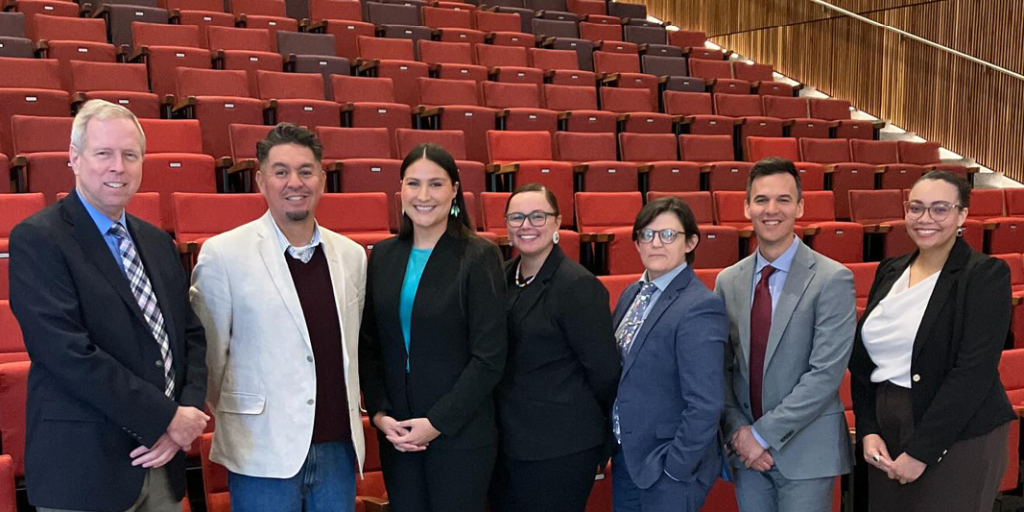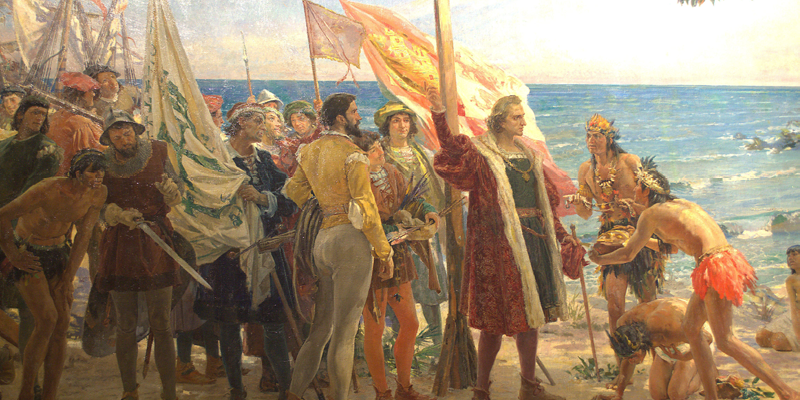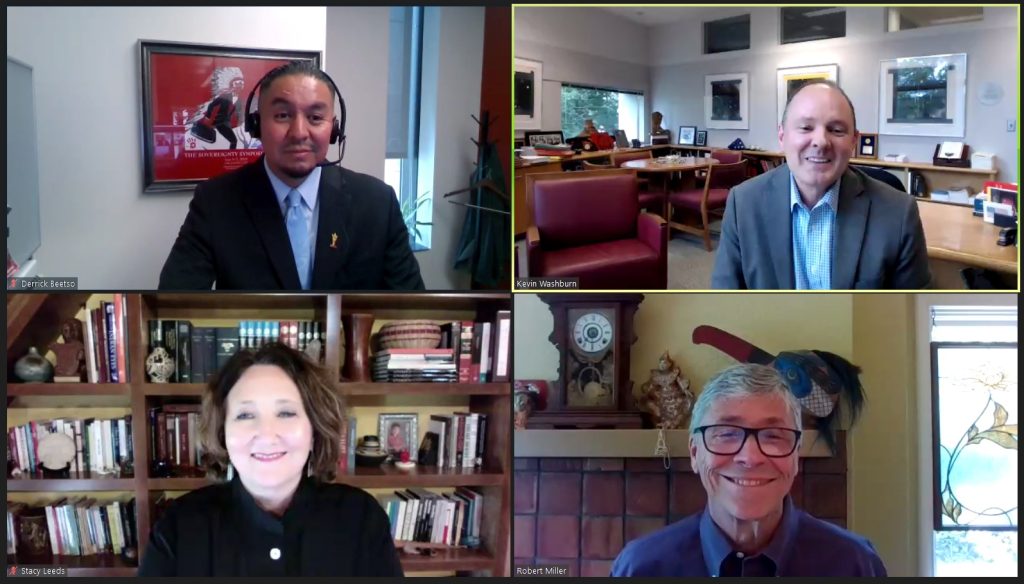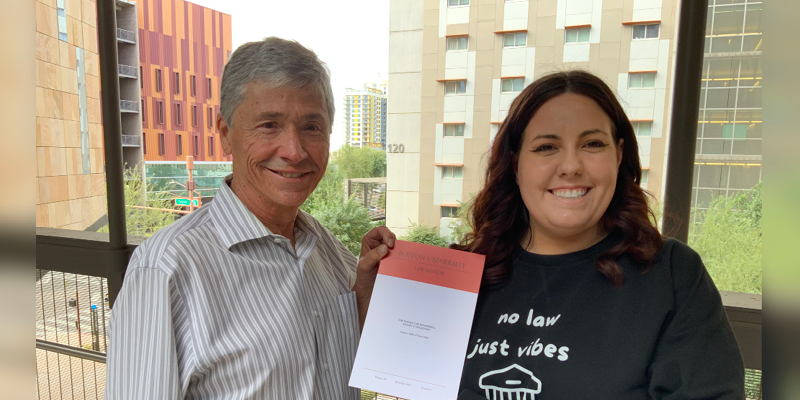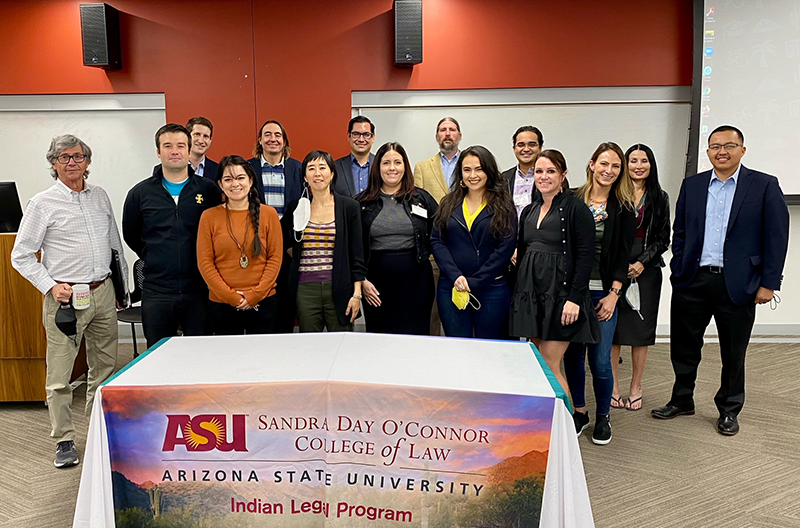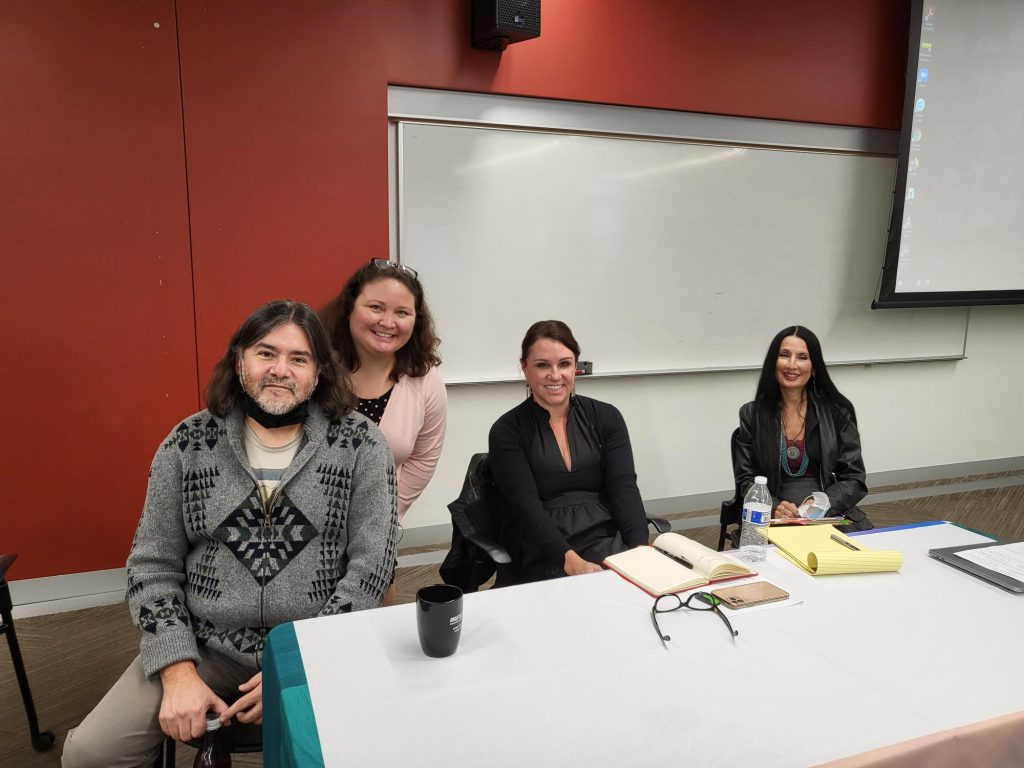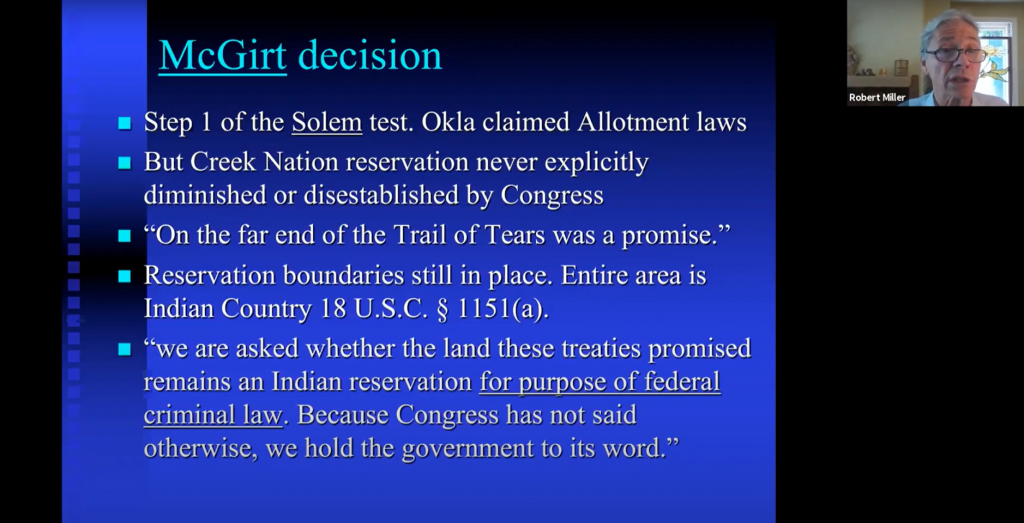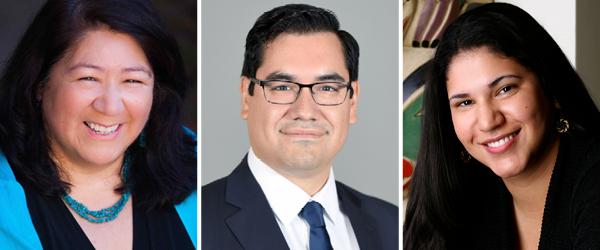On July 12, 2020 Professor Miller was quoted in the Arizona Republic article on the McGirt case. Read article here.
On July 14, Professor Miller along with Professor Larry Roberts, presented on McGirt case to the ILP students.
On July 23, the Indian Legal Program at the Sandra Day O’Connor College of Law at ASU hosted, “The Most Significant Indian law Case of the Century: McGirt v. Oklahoma,” webinar that offered an in-depth case overview, ” which included presenters: Professor Miller, Professor Stacy Leeds, Derrick Beetso (’10), Ambassador, Muscogee Creek Nation Ambassador Jonodev Chaudhuri and moderated by Professor Roberts. View the recording here.
On July 30, Professor Miller gave a two-hour Indian law training for the U.S. DOE Bonneville Power Administration and discussed McGirt case at length.
In July, Professor Miller stated, “The Court is upholding this 1832 treaty that the Creek Nation signed with the United States, and is holding the United States to those promises” during his interview with the Voice of America (VOA) News. Watch full video here.
Professor Miller also presented, “McGirt v. Oklahoma: Understanding the Decision and its Implications for Indian Country” for the Oregon Historical Society. Watch Miller’s presentation here.
On August 4, Professor Miller co-presented a McGirt webinar for the American Indian Community House in New York City.
On August 31, Professor Miller presented on his upcoming paper “The Indian Law Bombshell: McGirt v. Oklahoma” to law school faculty. Co-author Native Vote Fellow Torey Dolan (’19) joined the discussion. Miller and Dolan published their law review draft article, “The Indian Law Bombshell: McGirt v. Oklahoma” in the SSRN. Read the draft article here.
Professor Miller drafted an 800-word blurb on the McGirt decision for the American Association of Law Schools’ (AALS) Indigenous Nations section newsletter.
On September 15, Professor Miller was a guest on the daily radio program Native America Calling to speak about the McGirt case. Listen here.
On September 17, Professor Miller was a panelist on a 90-minute Zoom conference for the Northeast Corporate Counsel Organization Diversity & Equity Committee and he spoke about the McGirt decision and its impact on corporate clients in Oklahoma.
On October 26, Professor Miller spoke on a panel session about McGirt for Boston College Law School.
On November 4, Professor Miller gave a keynote speech on McGirt for the “American Society for Ethnohistory Annual Conference” at University of North Carolina.
On November 13, Professor Miller participated in the Oregon State Bar CLE panel and discussed the McGirt case.
On November 19, Professor Miller presented a one-hour speech for the American Philosophical Society on the McGirt case. Watch the recording here.
On December 11, Professor Miller gave a presentation on his current research on the landmark Supreme Court decision in McGirt v. Oklahoma for ASU’s Indigenous Research Roundtable (IRR).
